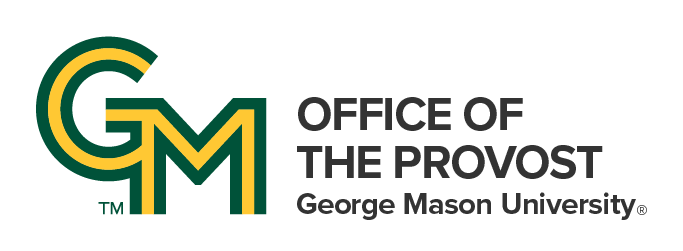One of a department chair's major responsibilities is to oversee and supervise faculty reviews. These evaluations play a critical role in determining someone’s professional future.
That's not an exaggeration. As unit leader, your recommendations to the dean or director will establish which career paths your people will be able to access. An annual review also determines salary increases, an important factor in attracting and retaining faculty.
At the same time, it's essential that we set and maintain the highest performance standards for our faculty members. They're tasked with producing George Mason University's graduates of the highest caliber, and as a department chair, it's your responsibility to ensure they meet those standards.
Faculty personnel evaluation includes:
- Annual reviews.
- Renewal and promotion of tenure-track and tenured faculty.
- Reappointment and promotion of term faculty.
- Review of adjunct faculty.
Providing Feedback
George Mason faculty members are evaluated on the quality of their overall performance in meeting their goals and completing their assignments. It's critical that we recognize and praise their strengths, while also discussing areas in which they could improve.
This information is essential to tenure-track faculty members and to those who seek promotion to full professor, to help them through the renewal and promotion process.
The review system also serves as a reminder of the department's missions and goals, and how faculty play a part in reaching those goals.
Departments must provide review results, and the reasoning behind those results, to the faculty member in writing. Faculty must also be given the opportunity to respond to and discuss the evaluation.
Evaluation Timeline
The annual review process typically takes place early in the fall semester. Many department chairs send annual review guidelines to faculty by the end of the spring semester, with reminders in early August.
If you use a faculty evaluation committee or other form of peer review, we urge you to schedule meetings no later than September.
Reviews are due to the dean’s office by the beginning of October, unless otherwise noted.
Promotion and Tenure
Department chairs typically begin the promotion and tenure process during the spring semester. You will:
- Identify the candidate(s) coming up the following academic year.
- Brief them on the process and timeline.
- Schedule peer observations.
- Set up an internal review committee for each candidate.
- Identify, solicit, and contact external reviewers for each candidate.
Provide your external reviewers with written departmental criteria for promotion and tenure, and inform them if your department values certain qualities (e.g., inter/multi-disciplinary collaboration).
Timeline:
- May or early June: Have external reviewers in place.
- By the end of June: Provide external reviewers with candidate packages and case review instructions.
- August or early September: Collect external review letters.
- September: Look for the timeline/schedule for promotion and tenure from the Office of the Provost.
- October: Provide your dean's office a list of promotion-seeking candidates.
- December 1: Send departmental and chair letters for each candidate to the dean’s office, unless otherwise instructed.
- January: Provide copies of the candidates’ dossiers to the Office of the Provost.
Candidate dossiers should follow the Tenure Casebook Template carefully. All templates can be found on our Faculty Appointments page.
Faculty Renewal
Timeline:
- October: Notify the dean's office of eligible academic-year renewal candidates.
- If your renewal process includes a full faculty vote, make sure everyone has the appropriate documents for review and discussion as the semester begins.
- November: Deliver dossiers for each candidate and set up a departmental review committee . The committee must forward recommendations no later than early January; earlier is better.
- January: Renewal letters are typically due to the dean.
Third-year Tenure-Track Faculty
Timeline:
- September: Look for the timeline/schedule for promotion and tenure from the Office of the Provost.
- October: Provide your dean's office a list of promotion-seeking candidates.
- November: Organize a review committee or reconvene your standing committees to evaluate candidate dossiers.
- January: Submit renewal letters* to your dean's office * NOTE: For this to take place, most review committees will need to have finished business by the close of the fall semester. Please also allow time for faculty voting where applicable.
Promotion of Term Faculty
Term faculty members are eligible for promotion. Visit Faculty Appointments for details. For more information, contact Kimberly Ford at 703-993-9367.
